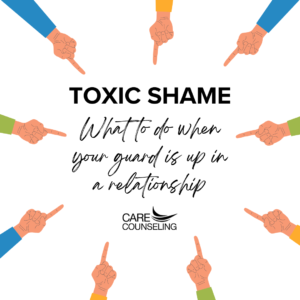What to do When Your Guard is up in Relationship
 There are a lot of people who have experienced pain and suffering in relationships, especially in intimate partner relationships. Feeling “screwed over” being cheated on, lied to, deceived, or betrayed by a partner(s) can deeply impact one’s sense of trust and question self in a relationship.
There are a lot of people who have experienced pain and suffering in relationships, especially in intimate partner relationships. Feeling “screwed over” being cheated on, lied to, deceived, or betrayed by a partner(s) can deeply impact one’s sense of trust and question self in a relationship.
Emotions are shoved down and suppressed. You can’t help yourself but stew in anger, as your relationship is too painful to talk about it. The emotional wounds are fresh, and the betrayal trauma hurts too bad. You should have known better. At least that is what you tell yourself. “If it happens once, shame on you”. If it happened twice, shame on me”. How could I be such a [fill in the blank with your choice of self-deprecating word]. You feel bad and the shame spiral begins to spin out of control.
Brene Brown defines shame as an “intensely painful feeling or experience of believing that we are flawed and therefore unworthy of love and belonging”. Wow. Imagine how internalizing shame impacts your sense of self and how you interact with others, especially when it is toxic.
Toxic shame includes the following:
- Negative impact on a sense of self
- Ongoing feelings of inadequacy
- Negative inner voice
- Feeling like a bad person
If you have experienced previous trauma, or have been diagnosed with posttraumatic stress disorder (PTSD) you may be familiar with these sensations in your body, as you feel numb and disconnected. Denial and avoidance seem like the easier route, even though you know that these aren’t very healthy. Perhaps you have turned to substances to help cope. It may feel difficult to function at home, school, or work and even think of the possibility of being in a relationship again. Your guard is on high alert. Who can you trust?
You feel embarrassed as part of your shame. You should have known better. You should have run the other way a long time ago. You “should on” yourself. You question your choices and question why. This line of questioning ends down the rabbit hole of ruminating that makes your feel even worse as there are no clear answers. You want to understand but there is no explanation.
Fortunately, hope and healing are possible. This starts with talking to yourself like you talk to someone that you love, which is one of three things Brene Brown talks about to help stop the shame spiral. Kindness and self-compassion as key as well as working with cognitive distortions that are part of negative thinking such as ‘shoulds”. Focus on building a solid sense of self. Allow yourself to grieve as you work with emotional experiences such as shock, anger, and denial.
The second strategy is to reach out to someone you trust. This can be a good friend, a family member, a trusted person in your community, or a therapist as you share your story.
This is the third strategy
Give yourself permission to let go of anger/ resentment as these can interfere with the healing process. Holding onto anger and tending to it can be like adding fuel to the fire that eventually ignites rage. Forgiveness of oneself and others is often key. According to Brene Brown, secrecy, silence, and judgment are the three things that shame needs to grow but the antidote is having shame be spoken and met with empathy. Therapy offers a supportive and nonjudgmental space to do so.
Check out more here: https://www.youtube.com/watch?v=TdtabNt4S7E
Written By: Charlotte Johnson, MA, LPCC



























